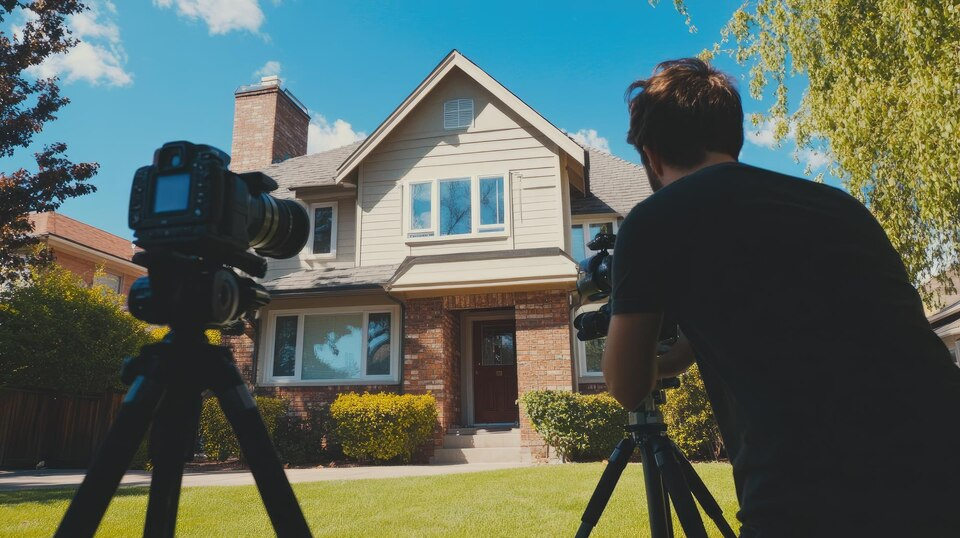
Selling a home can feel like an overwhelming task, especially when you’re working against the clock. Whether you’re relocating for a new job, upgrading to a bigger space, or downsizing, getting your home sold quickly requires a combination of strategy, preparation, and the right approach.
While external factors such as the housing market, interest rates, and seasonality influence the speed of a sale, there are numerous proactive steps you can take to attract buyers and close the deal efficiently. From setting the right price to making your home visually appealing, this guide outlines the most effective ways to sell your home faster.
By following these expert-backed strategies, you’ll increase your chances of receiving multiple offers and securing a favorable deal in the shortest time possible.
Pick a Selling Strategy
Before listing your home, one of the first decisions you’ll need to make is how you plan to sell it. There are multiple selling methods, each with advantages and challenges. Choosing the right one depends on your timeline, level of involvement, and financial goals.
Hiring a Real Estate Agent
Many homeowners choose to work with a real estate agent because of the expertise and market access they provide. A skilled agent can guide you through the process, ensuring that your home is priced correctly, marketed effectively, and positioned to attract the right buyers.
Some key advantages of working with an agent include:
- Market knowledge: A good agent understands local trends, buyer demand, and pricing strategies.
- Marketing reach: Agents have access to multiple listing services (MLS), social media marketing, and networks of potential buyers.
- Negotiation skills: A professional can help you secure the best possible price while handling counteroffers and contingencies.
- Time savings: They take care of the paperwork, scheduling, and logistics, reducing your workload.
While real estate agents charge a commission—typically a percentage of the sale price—their ability to attract buyers and facilitate a smooth transaction often justifies the cost.
Selling Your Home Yourself (FSBO)
Some homeowners choose the For Sale by Owner (FSBO) route to avoid paying agent commissions. This approach requires more effort but can be cost-effective if done correctly.
If you decide to sell FSBO, here are a few essential steps:
- Research market conditions to determine an accurate and competitive price.
- List your home online using real estate websites and social media platforms.
- Take high-quality photos and create a compelling description to attract interest.
- Schedule and conduct showings while maintaining communication with potential buyers.
- Handle negotiations and paperwork to ensure a smooth transaction.
While FSBO gives you full control, it requires a solid understanding of real estate contracts, legal disclosures, and marketing techniques. If you're unfamiliar with the process, working with an agent may be a safer and more efficient choice.
Selling to an Investor or Cash Buyer
If your primary goal is speed, selling to a real estate investor or cash buyer might be the best option. These buyers specialize in purchasing homes quickly, often within days or weeks, without requiring extensive repairs or staging.
Pros of selling to an investor:
- Quick closing process: Many cash buyers complete the transaction in a matter of days.
- No need for repairs: Investors often buy homes "as-is," meaning you won’t have to spend time or money on renovations.
- Simplified transaction: Fewer contingencies and inspections make the sale smoother.
Cons of this approach:
- Lower sale price: Cash offers are typically below market value since investors look for profit potential.
- Limited negotiation power: Buyers in this category often make firm, non-negotiable offers.
While this method doesn’t yield the highest price, it’s an excellent choice for homeowners facing financial difficulties, foreclosure, or urgent relocation needs.
Set a Realistic Price

Pricing your home appropriately plays a key role in the home-selling process. Setting the price too high may discourage potential buyers and cause your listing to sit on the market for an extended period, making it less attractive over time. On the other hand, underpricing may result in a loss of potential profit. Striking the right balance ensures that your home attracts interest while maximizing its value.
To determine a competitive price, it's essential to analyze recently sold homes in your area that share similar characteristics, such as size, square footage, number of bedrooms and bathrooms, lot size, and amenities. Renovations or upgrades can also influence pricing, as updated homes often command higher offers. This process, known as a Comparative Market Analysis (CMA), helps establish a realistic price range that aligns with current market trends.
The state of the housing market also plays a significant role in pricing strategy. In a seller’s market, where demand is high and available inventory is low, you may be able to price slightly above comparable homes, as buyers are more willing to compete. In contrast, a buyer’s market, where more homes are for sale than there are buyers, requires competitive pricing to attract interest and generate offers.
A well-priced home not only captures the attention of more buyers but can also create competition, leading to stronger offers and a faster sale. By setting a realistic price based on market conditions and comparable sales, sellers increase their chances of securing a fair deal promptly.
Clean, Declutter, and Depersonalize
A clean and clutter-free home makes a lasting impression on buyers. Preparing your space before listing it can make the home feel larger, more inviting, and move-in ready. When a home is well-organized and free of distractions, buyers can better envision themselves living in the space, increasing the likelihood of a faster sale.
Buyers need to picture themselves in the home. Removing family photos, awards, and personal collections helps create a neutral environment that appeals to a wider audience. When a home is filled with personal belongings, it can be difficult for buyers to imagine making it their own. By depersonalizing the space, you allow them to focus on the home's features rather than the current owner's lifestyle.
Ample storage is a major selling point. Decluttering closets, pantries, and cabinets helps showcase available space, making the home feel more functional. Overfilled storage areas can give the impression that there isn't enough room, so it's important to keep them tidy. Consider using storage bins to keep items organized or renting a storage unit to temporarily store excess belongings. Creating a sense of spaciousness in storage areas can make a home feel more appealing and practical to buyers.
Stage the Home for Optimal Appeal
Staging is a proven method to help homes sell faster and for a higher price. It involves arranging furniture, décor, and lighting to showcase the home’s best features.
Highlight Key Selling Points
- Maximize natural light: Open curtains and blinds to make rooms feel bright and airy.
- Rearrange furniture: Position seating to create open, welcoming spaces.
- Upgrade décor: Use neutral tones and minimalistic styling for a modern, clean look.
Invest in Professional Photography

Since most buyers begin their home search online, high-quality listing photos are essential. Professional photography can make your home stand out and attract more showings.
Capture the Best Angles
A professional photographer will:
- Use wide-angle shots to make rooms look larger.
- Highlight natural lighting to create a warm, inviting feel.
- Showcase key features such as fireplaces, hardwood floors, and updated kitchens.
Improve Your Home's Exterior Appeal
The exterior of your home is the first thing buyers see. Simple enhancements can make a big difference in first impressions.
Easy Ways to Improve Curb Appeal
- Mow the lawn and trim overgrown bushes.
- Add fresh mulch, flowers, or potted plants.
- Paint the front door for a fresh, welcoming look.
- Replace outdated or broken light fixtures.
Be Flexible with Showings
Being flexible with showings can significantly impact how quickly your home sells. Buyers often have busy schedules, so allowing evening and weekend showings increases the chances of attracting serious offers. Keeping your home clean, clutter-free, and smelling fresh creates a welcoming atmosphere. Additionally, stepping out during showings allows buyers to explore the space freely and envision themselves living there without distractions.
Offering buyer incentives can also make a big difference in a competitive market. Covering a portion of closing costs, offering a home warranty, or providing a credit for upgrades can make your home stand out. These incentives help ease buyers' financial concerns and make your property more appealing, especially in a buyer’s market. For example, first-time buyers often struggle with closing costs, so offering assistance can make your home a more attractive option. Likewise, a home warranty reassures buyers by covering major systems and appliances, reducing concerns about unexpected expenses. These strategic incentives can help secure a faster and smoother sale.
Ensure the Home is Move-In Ready
Buyers are more likely to make an offer on a home that feels move-in ready. Small repairs, like fixing leaky faucets, repainting scuffed walls, or replacing broken fixtures, can make a big difference. A well-maintained home signals to buyers that they won’t have to spend extra money on immediate repairs, making your property more attractive.
Remove Pets During Showings
Not all buyers are pet lovers, and some may have allergies or concerns about odors. Before showings, remove pet items like litter boxes, food bowls, and beds. Deep clean carpets and furniture to eliminate pet hair and smells. Taking pets out during showings ensures that buyers can focus on your home without distractions.
Offer Competitive Buyer Incentives
Providing incentives can give your home an edge over the competition. Covering part of the closing costs, offering a home warranty, or providing a credit for minor upgrades can make your home more appealing to buyers. These small perks can help you attract serious offers and close the deal faster.
Time Your Sale Strategically
The time of year can impact how quickly your home sells. Spring and summer are peak seasons when demand is highest, leading to quicker sales and competitive offers. Fall and winter tend to be slower, but serious buyers are often motivated to close deals faster. Understanding market trends can help you time your sale for the best results.
Leverage Social Media and Online Platforms

Most buyers start their home search online, so marketing your home effectively is crucial. Sharing your listing on social media, local community groups, and real estate websites can increase exposure. High-quality photos, virtual tours, and engaging descriptions can attract more potential buyers and generate interest.
Consider Pre-Listing Inspections
A pre-listing inspection can help you identify and address potential issues before your home goes on the market. Fixing problems in advance reduces the risk of buyers backing out due to unexpected repairs. It also builds trust with buyers and can lead to smoother negotiations and faster sales.
Work with an Experienced Real Estate Agent

A knowledgeable real estate agent can help you price your home correctly, market it effectively, and negotiate the best deal. Their expertise can streamline the selling process and increase your chances of a quick and profitable sale. Choosing an agent with a strong track record in your area can make all the difference.
Final Thoughts
Selling a home quickly requires careful planning, strategic pricing, and effective marketing. By taking the right steps—cleaning, staging, investing in photography, and remaining flexible with showings—you can increase your chances of attracting serious buyers and closing the sale efficiently.
Whether you choose to work with an agent, sell independently, or explore alternative selling methods, implementing these strategies will put you in the best position for a smooth and successful transaction.

Get a no-obligation offer in just a few minutes.





.webp)




.webp)
